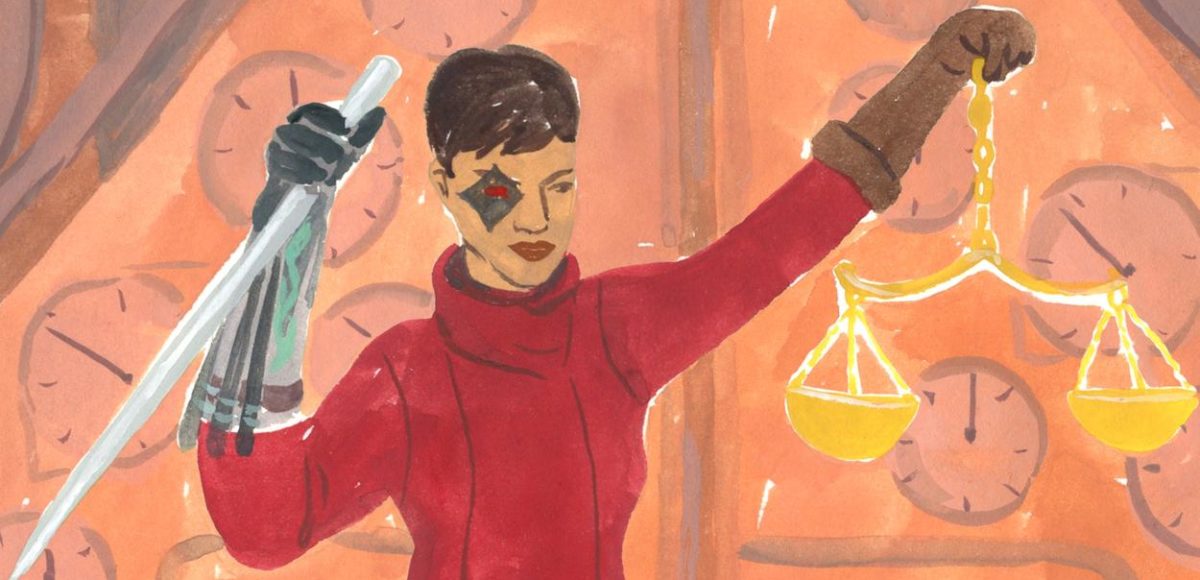Dishonored: Death of the Outsider, the stand-alone expansion to 2016’s Dishonored 2, follows the story of Billie Lurk, the assassin Daud’s erstwhile protégé, and Corvo Attano and Emily Kaldwin’s unlikely ally. The game’s shifted focus allows us to get a good look at a character who, for the last two games, has kept mostly to the shadows. Learning more about Billie, in turn, affords us a greater understanding of the entrenched power structures of Dishonored and how she fits into them.
The first two games are helmed either by royalty or someone directly adjacent to it. Corvo, despite humble roots, is tightly intertwined with nobility by the time we are introduced to him. Emily, a princess, inherits the throne. As a result, their relative positions influence their outlook on the rest of the world. As Duncan Fyfe wrote for Waypoint last year: “What Emily and Corvo seem to forget along with their powers and abilities is the fact that they’ve been in power for decades. What’s so galling, when they gape at the state of Karnaca, isn’t that those problems happened on their watch, but that they seem to be learning about them for the first time.”
Billie is about as far away from royalty as you’re likely to get playing a game about various states of being honored. Unlike Corvo, who’s swordsmanship earned him the royal protector position, she has moved laterally, rather than up the social ladder: from starving orphan, to thief, to assassin—not for any noble end, but for basic survival. Unlike Corvo, and nearly everyone else in a position of power and influence, she’s a queer black woman. Alone, any one of these aspects of her identity would disqualify her from power and privilege; together, they’re a potent cocktail for her loneliness and marginalization.
Which is why getting to play as someone like her, someone who sees power not as a birthright but as a tool with which to dig a small kernel of justice out of society’s impenetrable walls, is so damn exciting. …continue reading on Waypoint

